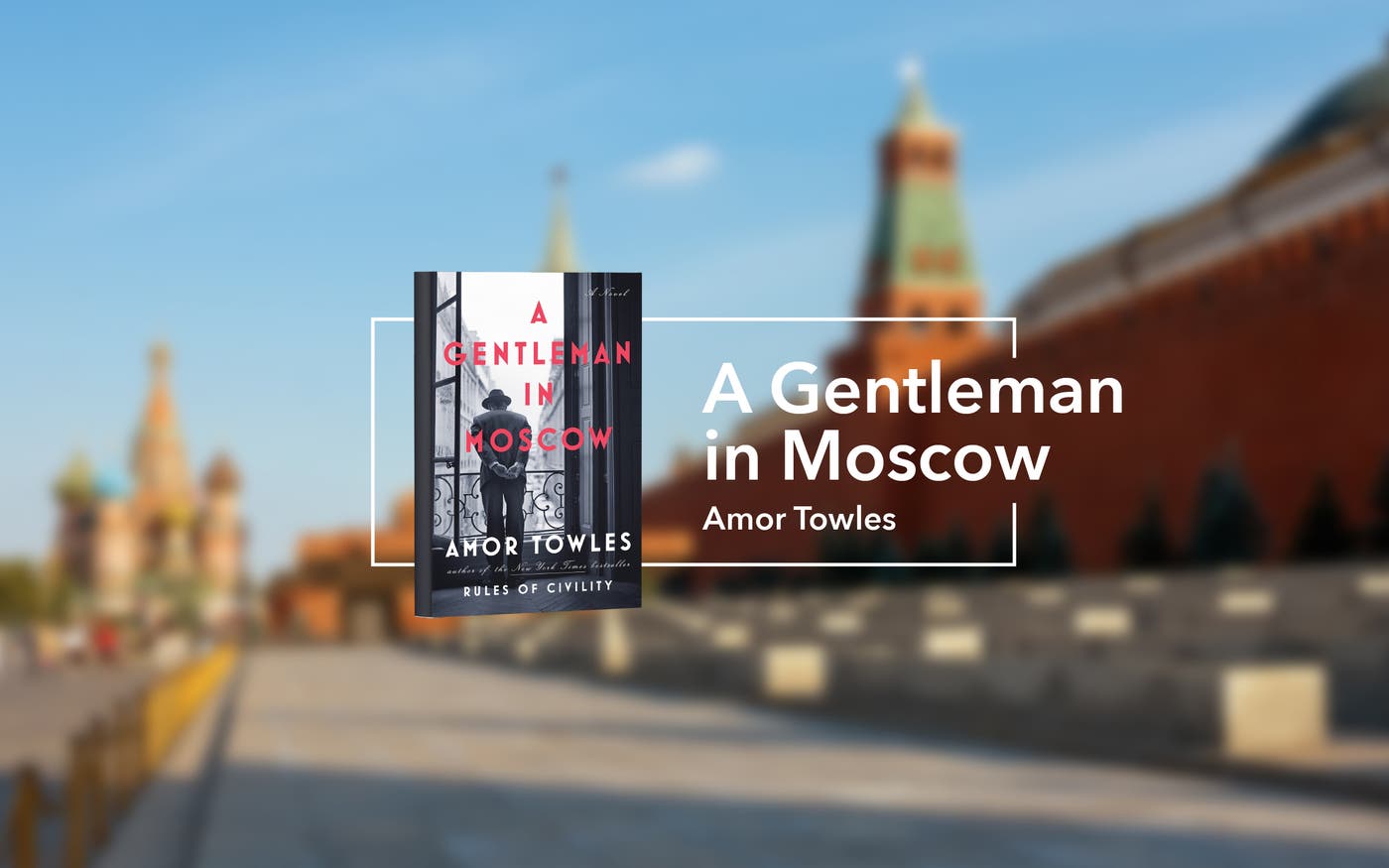
Out for the count
A Gentleman in Moscow has a little bit of everything
Towles’s novel is technically historical fiction, but you’d be just as accurate calling it a thriller or a love story.

Melinda and I sometimes read the same book at the same time. It’s usually a lot of fun, but it can get us in trouble when one of us is further along than the other—which recently happened when we were both reading A Gentleman in Moscow by Amor Towles.
At one point, I got teary-eyed because one of the characters gets hurt and must go to the hospital. Melinda was a couple chapters behind me. When she saw me crying, she became worried that a character she loved was going to die. I didn’t want to spoil anything for her, so I just had to wait until she caught up to me.
That one scene aside, A Gentleman in Moscow is a fun, clever, and surprisingly upbeat look at Russian history through the eyes of one man. At the beginning of the book, Count Alexander Ilyich Rostov is sentenced to spend his life under house arrest in Moscow’s Metropol Hotel. It’s 1922, and the Bolsheviks have just taken power of the newly formed Soviet Union. The book follows the Count for the next thirty years as he makes the most of his life despite its limitations.
Although the book is fictional, the Metropol is a real hotel. I’ve even been lucky enough to stay there (and it looked mostly the same as Towles describes in the book). It’s the kind of place where you can’t help but picture what it was like at different points in time. The hotel is located across the street from the Kremlin and managed to survive the Bolshevik revolution and the rise and fall of the Soviet Union. That’s a lot of history for one building.
Many scenes in the book never happened in real life (as far as I know), but they’re easy to imagine given the Metropol’s history. In one memorable chapter, Bolshevik officials decide that the hotel’s wine cellar is “counter to the ideals of the Revolution.” The hotel staff is forced to remove labels from more than 100,000 bottles, and the restaurant must sell all wine for the same price. The Count—who sees himself as a wine expert—is horrified.
Count Rostov is an observer frozen in time, watching these changes come and go. He felt to me like he was from a different era from the other characters in the book. Throughout all the political turmoil, he manages to survive because, well, he’s good at everything.
He’s read seemingly every book and can identify any piece of music. When he’s forced to become a waiter at the hotel restaurant, he does it with this panache that is incredible. He knows his liquor better than anyone, and he’s not shy about sharing his opinions. The Count should be an insufferable character, but the whole thing works because he’s so charming.
Towles has a talent for quirky details. Early-ish in the book, he says the Count “reviewed the menu in reverse order as was his habit, having learned from experience that giving consideration to appetizers before entrees can only lead to regret.” A description like that tells you so much about a character. By the end of the book, I felt like the Count was an old friend.
You don’t have to be a Russophile to enjoy the book, but if you are, it’s essential reading. I think early 20th century Russian history is super interesting, so I’ve read a bunch of books about Lenin and Stalin. A Gentleman in Moscow gave me a new perspective on the era, even though it’s fictional. Towles keeps the focus on the Count, so most major historical events (like World War II) get little more than a passing mention. But I loved seeing how these events still shifted the world of the Metropol in ways big and small. It gives you a sense of how political turmoil affects everyone, not just those directly involved with it.
A Gentleman in Moscow is an amazing story because it manages to be a little bit of everything. There’s fantastical romance, politics, espionage, parenthood, and poetry. The book is technically historical fiction, but you’d be just as accurate calling it a thriller or a love story. Even if Russia isn’t on your must-visit list, I think everyone can enjoy Towles’s trip to Moscow this summer.

